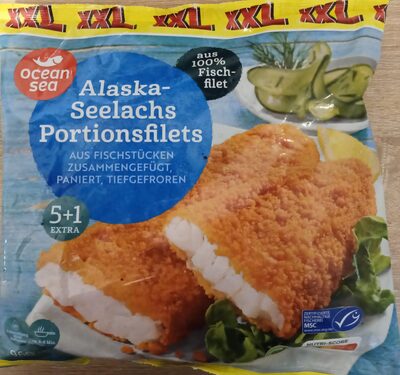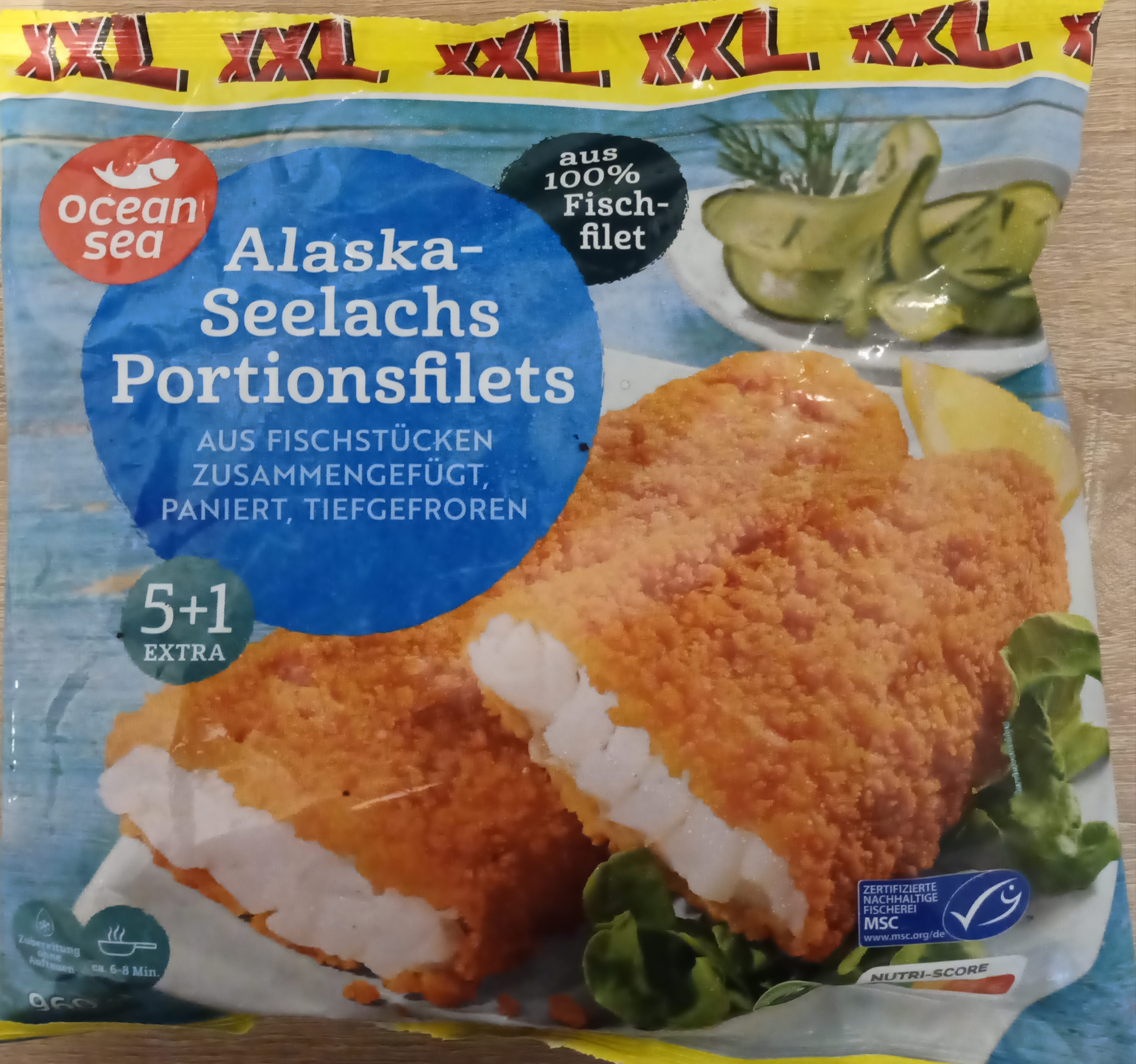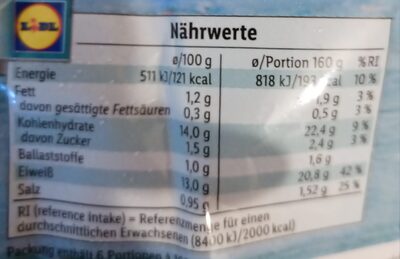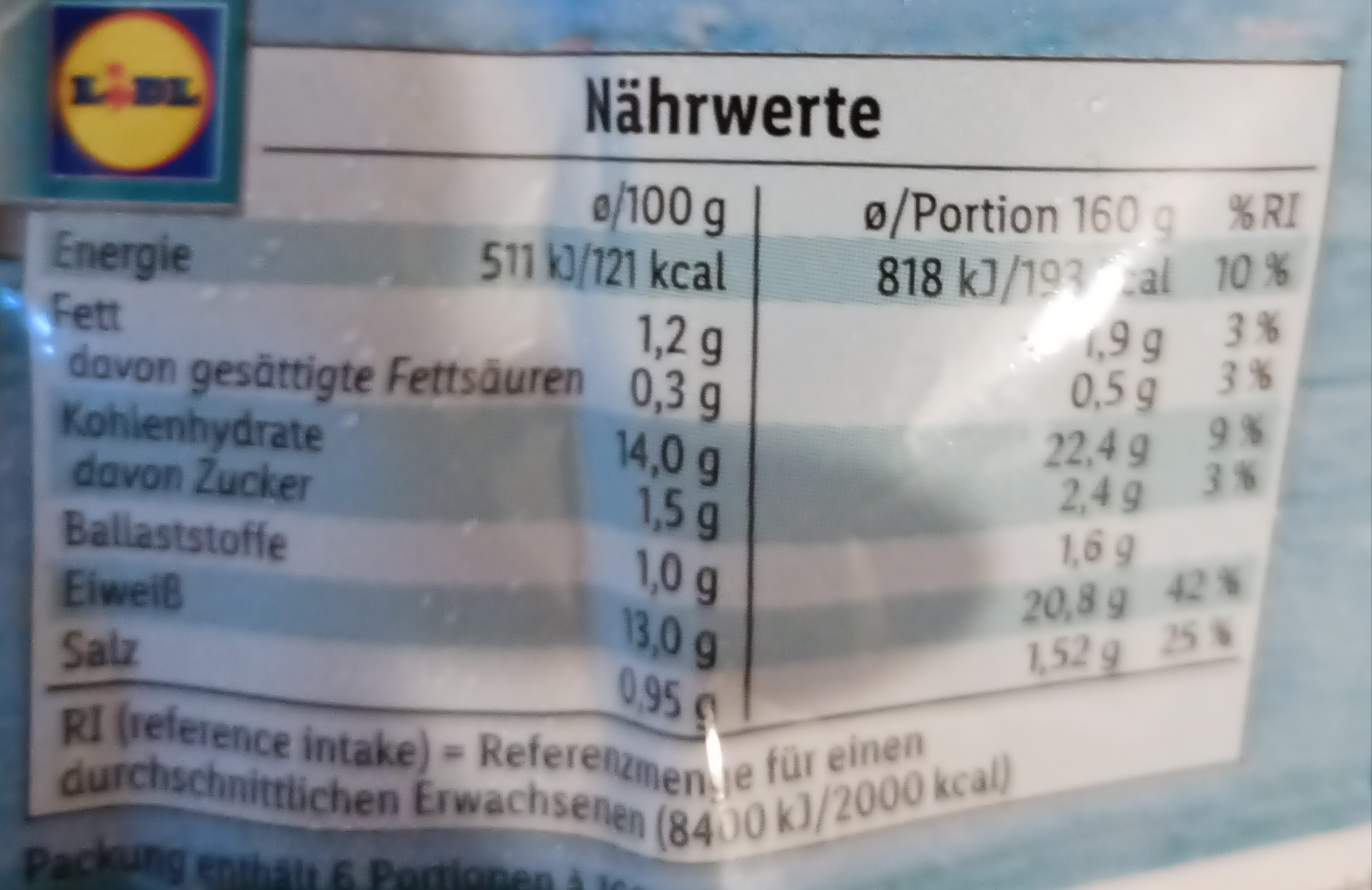Ocean Sea - 6pcs
Ambiguous barcode: This product has a Restricted Circulation Number barcode for products within a company. This means that different producers and stores can use the same barcode for different products.
×
This product page is not complete. You can help to complete it by editing it and adding more data from the photos we have, or by taking more photos using the app for Android or iPhone/iPad. Thank you!
×
Barcode: 20404987
Quantity: 6pcs
Packaging: Plastic, Bag, Frozen
Brands: Ocean Sea
Categories: Seafood, Fishes and their products, Fishes, Frozen foods, Meals, Fish preparations, Breaded products, Breaded fish, Breaded hake fish
Labels, certifications, awards:
Sustainable, Fishing method, Sustainable fishery, Nutriscore, Sustainable Seafood MSC, Trawl fishing, fr:MSC-C-52512
Origin of ingredients: Northwest Pacific Ocean, Northeast Pacific Ocean, fr:Pacifique Nord-Est, fr:Pacifique Nord-Ouest
Manufacturing or processing places: Allemagne
Traceability code: DE NI 11102 EG, MSC-C-52512
Stores: LIDL
Matching with your preferences
Environment
Carbon footprint
Packaging
Transportation
Labels
Report a problem
Data sources
Product added on by tacite
Last edit of product page on by prepperapp.
Product page also edited by damienb, ecoscore-impact-estimator, foodrepo, foodyard, kiliweb, openfoodfacts-contributors, packbot, quechoisir, roboto-app, sebleouf, yuka.AI15P9vUH-Z_P8v41alp-x67O7f5DOAFQlcQog, yuka.JrBdF_C2PfV4J_WJ4dsFxRe4Ss7bW9NpEkEuog, yuka.sY2b0xO6T85zoF3NwEKvlhZiWvvZjz3IKD3ilVaU2YyBdYTCMe9_5NjEPqs.









